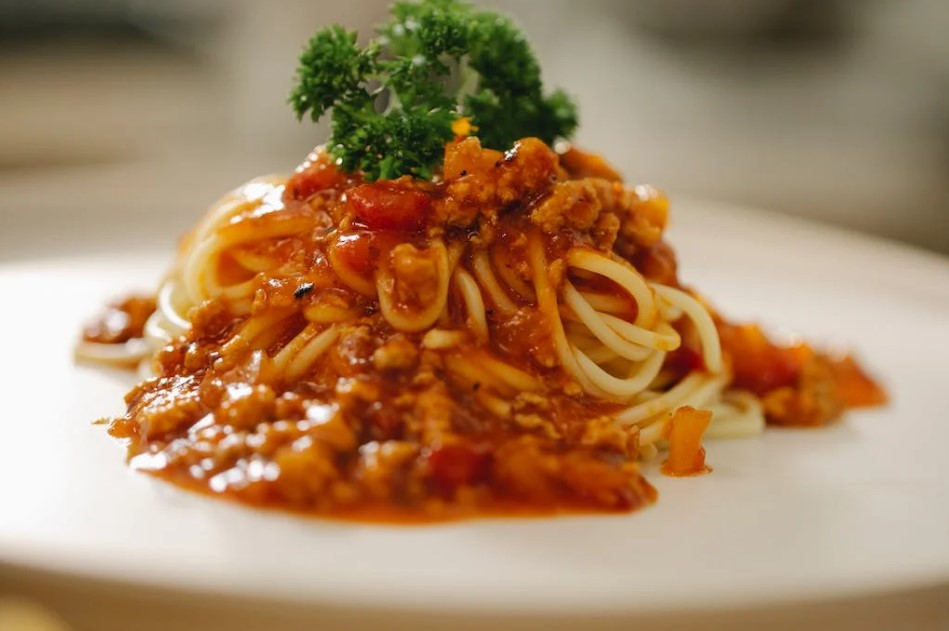
In the world of gastronomy, there are few dishes that elicit as much passion and debate as the beloved Bolognese sauce. Originating from the heart of Italy, Bolognese sauce has made its way across the globe, charming taste buds with its rich flavors and comforting allure. However, as it ventured far from its Italian roots, it underwent a transformation and adapted to the American palate. In this culinary showdown, we delve into the fascinating differences between Italian Bolognese and its American counterpart. Join us on this flavorful journey as we explore the origins, ingredients, preparation methods, and cultural significance of these two distinct renditions.
Origins and Heritage
Italian Bolognese: A Taste of Tradition
Italian Bolognese, known locally as “Ragù alla Bolognese,” hails from the culinary capital of Italy, Bologna. Its history dates back centuries, with the earliest known recipe documented in the late 18th century. This savory masterpiece embodies the essence of Italian cuisine, rooted in tradition and family heritage. The Italians take immense pride in their Bolognese sauce, often considering it a closely guarded family secret.
American Bolognese: An Evolution Abroad
Across the Atlantic, American Bolognese has undergone a remarkable evolution. As it mingled with the diverse American culinary landscape, it adapted to local tastes and preferences. American Bolognese is a testament to the melting pot of cuisines found in the United States, where creativity knows no bounds.
Ingredients: The Heart of the Matter
Italian Bolognese: Simple Elegance
True to its Italian heritage, authentic Bolognese sauce features a straightforward yet sublime combination of ingredients. It stars ground beef, pork, or a blend of both, cooked to perfection with aromatic vegetables such as onions, carrots, and celery. The secret weapon? A touch of milk to lend creaminess, a generous splash of red wine for depth, and a whisper of nutmeg for a hint of warmth. Canned tomatoes, simmered for hours, round out this classic sauce, which is traditionally served with tagliatelle pasta.
American Bolognese: A Fusion of Flavors
In contrast, American Bolognese takes a more eclectic approach. While ground meat remains a cornerstone, it often welcomes other proteins like sausage or ground turkey. The vegetable medley expands to include bell peppers and even mushrooms, adding layers of flavor and texture. Instead of wine, some recipes call for beef broth or even a dash of Worcestershire sauce. The use of herbs and spices is more liberal, resulting in a robust, complex taste. Linguine or spaghetti frequently accompanies this hearty sauce.
Preparation: Time-Honored vs. Quick and Easy
Italian Bolognese: A Labor of Love
Crafting authentic Italian Bolognese is a labor-intensive process that demands patience and dedication. The meat and vegetables simmer gently for hours, allowing the flavors to meld and intensify. This slow-cooked approach yields a sauce that is nothing short of sublime, a testament to the Italian commitment to culinary excellence.
American Bolognese: A Busy Cook’s Delight
On the other side of the spectrum, American Bolognese offers a more time-efficient solution. With the hustle and bustle of modern life, many opt for quicker recipes that still deliver a satisfying meal. American Bolognese can be prepared in under an hour, making it an attractive choice for busy families. The flavors are bold and inviting, providing a delicious compromise for those with limited time.
Cultural Significance
Italian Bolognese: A Family Tradition
In Italy, Bolognese sauce is more than just a meal; it’s a symbol of family unity. Generations come together in the kitchen, passing down cherished recipes and techniques. Italian Bolognese is often served on special occasions and family gatherings, carrying with it a sense of nostalgia and togetherness.
American Bolognese: Versatility and Innovation
American Bolognese embraces the spirit of innovation and adaptability. It has become a versatile staple in American households, appearing not only on pasta but also as a topping for pizzas, hot dogs, and even nachos. Its ability to meld with various cuisines has made it a beloved addition to the American culinary landscape.
In conclusion
The differences between Italian Bolognese and American Bolognese are a testament to the dynamic nature of culinary traditions. While Italian Bolognese embodies timeless elegance and a deep-rooted heritage, American Bolognese celebrates creativity and adaptability. Whether you prefer the slow-simmered perfection of Italy or the bold, diverse flavors of America, both renditions of this classic sauce offer a delightful culinary experience.










